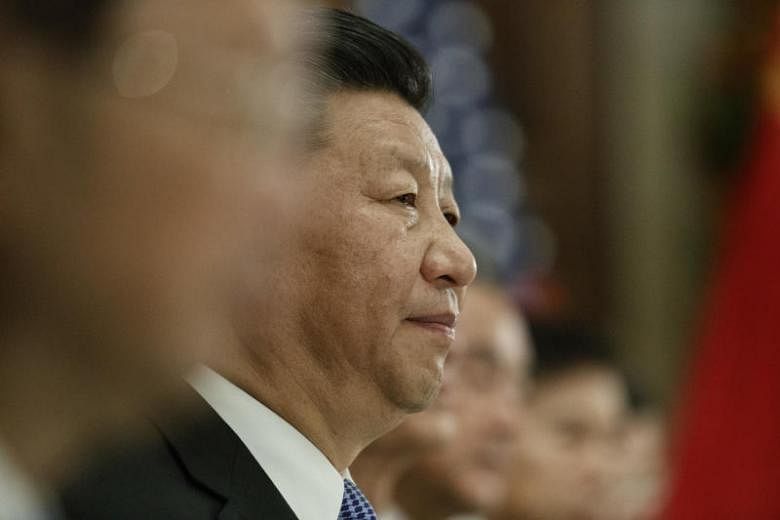BEIJING (AFP) - Top Chinese leaders have been forced to undergo a self-criticism session, state media said on Thursday (Dec 27), in a further sign of President Xi Jinping's efforts to enforce party loyalty amid signs of internal dissent over his handling of a trade war with the United States.
A tool highly favoured by Mao Zedong and taken to extremes during the Cultural Revolution, self-criticism sessions are back in favour under Mr Xi's presidency as he seeks to consolidate power and tighten discipline in the upper party echelons.
Members of the Politburo "were asked to conduct criticism and self-criticism in light of work experience" at a meeting held on Tuesday and Wednesday, state news agency Xinhua reported.
The were also questioned on "how they have taken the lead to implement Xi's instructions and key Party regulations and policies", it added.
The centre of power in China lies with the 25-member Politburo, though its role has lessened since Mr Xi got the top job in 2012 and started concentrating powers in his own hands.
Analysts, however, say the President's authority has been contested over the last few months due to an economic slowdown triggered by an ongoing trade war with the US.
Xinhua's report of the meeting does not say what self-criticisms the members of the Politburo were expected to make.
Self-criticisms were regularly carried out during the Cultural Revolution - a period of intense social and political upheaval launched by Mao from 1966-76 - and have returned under Mr Xi.
Experts said top officials appear to have wavered from the political line imposed by the strongman President.
Willy Lam, a professor at the Chinese University of Hong Kong, described the meeting as "extraordinary" because the leadership is "admitting there is tension within its ranks".
"It means some of the Politburo members have done or said things contrary to Xi Jinping's interests," he added.
Prof Lam said Mr Xi was being challenged for underestimating US President Donald Trump's determination and failing to see the tariff increases that particularly penalise the export regions in the south and east and the country's high-tech industries.
Mr Xi "is under tremendous pressure to come to a compromise with Trump" before the deadline in early March, he said.
The date coincides with the annual plenary session of the Chinese Parliament, during which Mr Xi risks criticism from the representatives of the regions and sectors most affected by the trade tensions.
In the trade negotiations, "Donald Trump is in a good position to benefit from Xi's weak position", Prof Lam said.
Mr Xi reportedly made a speech at the meeting, during which he lauded "democratic centralism" - one of the founding principles of Leninism in which the top leadership is all-powerful - and called for unity within the party.
Mr Xi is considered the country's most powerful leader since Mao.
However, he lacks the prestige of the founder of the people's republic, "so he doesn't feel secure, and to be frank, this also shows a lack of self-confidence", said Beijing-based independent political commentator Hua Po.
"He always suspects that someone wants to rebel," Mr Hua said. "So for Xi Jinping, strengthening the centralised system and absolute obedience to his leadership is now the only way to face these internal and external challenges."
Since he came to power, Mr Xi has waged a campaign against corruption, punishing more than 1.5 million officials. Some observers however say the crackdown has targeted his internal opponents in particular.

